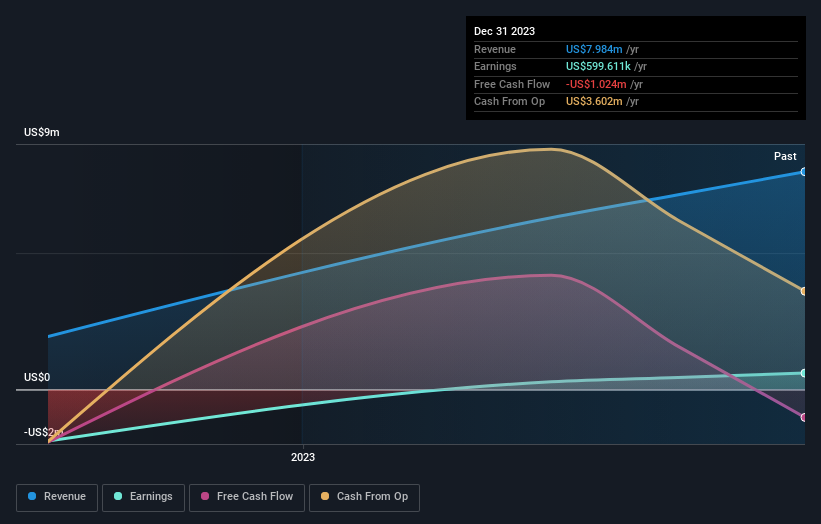- United States
- /
- Personal Products
- /
- NasdaqGM:DSY
Big Tree Cloud Holdings Limited (NASDAQ:DSY) CEO Wenquan Zhu, the company's largest shareholder sees 15% reduction in holdings value
Key Insights
- Big Tree Cloud Holdings' significant insider ownership suggests inherent interests in company's expansion
- The largest shareholder of the company is Wenquan Zhu with a 88% stake
- Using data from company's past performance alongside ownership research, one can better assess the future performance of a company
Every investor in Big Tree Cloud Holdings Limited (NASDAQ:DSY) should be aware of the most powerful shareholder groups. We can see that individual insiders own the lion's share in the company with 88% ownership. That is, the group stands to benefit the most if the stock rises (or lose the most if there is a downturn).
As market cap fell to US$193m last week, insiders would have faced the highest losses than any other shareholder groups of the company.
Let's delve deeper into each type of owner of Big Tree Cloud Holdings, beginning with the chart below.
View our latest analysis for Big Tree Cloud Holdings

What Does The Lack Of Institutional Ownership Tell Us About Big Tree Cloud Holdings?
Institutional investors often avoid companies that are too small, too illiquid or too risky for their tastes. But it's unusual to see larger companies without any institutional investors.
There could be various reasons why no institutions own shares in a company. Typically, small, newly listed companies don't attract much attention from fund managers, because it would not be possible for large fund managers to build a meaningful position in the company. Alternatively, there might be something about the company that has kept institutional investors away. Big Tree Cloud Holdings' earnings and revenue track record (below) may not be compelling to institutional investors -- or they simply might not have looked at the business closely.

Hedge funds don't have many shares in Big Tree Cloud Holdings. The company's CEO Wenquan Zhu is the largest shareholder with 88% of shares outstanding. This implies that they possess majority interests and have significant control over the company. Investors usually consider it a good sign when the company leadership has such a significant stake, as this is widely perceived to increase the chance that the management will act in the best interests of the company. With 0.1% and 0.04% of the shares outstanding respectively, Polar Asset Management Partners Inc. and RiverNorth Capital Management, LLC are the second and third largest shareholders.
While studying institutional ownership for a company can add value to your research, it is also a good practice to research analyst recommendations to get a deeper understand of a stock's expected performance. We're not picking up on any analyst coverage of the stock at the moment, so the company is unlikely to be widely held.
Insider Ownership Of Big Tree Cloud Holdings
The definition of company insiders can be subjective and does vary between jurisdictions. Our data reflects individual insiders, capturing board members at the very least. Management ultimately answers to the board. However, it is not uncommon for managers to be executive board members, especially if they are a founder or the CEO.
I generally consider insider ownership to be a good thing. However, on some occasions it makes it more difficult for other shareholders to hold the board accountable for decisions.
Our most recent data indicates that insiders own the majority of Big Tree Cloud Holdings Limited. This means they can collectively make decisions for the company. That means they own US$169m worth of shares in the US$193m company. That's quite meaningful. Most would be pleased to see the board is investing alongside them. You may wish todiscover (for free) if they have been buying or selling.
General Public Ownership
The general public-- including retail investors -- own 12% stake in the company, and hence can't easily be ignored. While this size of ownership may not be enough to sway a policy decision in their favour, they can still make a collective impact on company policies.
Next Steps:
It's always worth thinking about the different groups who own shares in a company. But to understand Big Tree Cloud Holdings better, we need to consider many other factors. For example, we've discovered 5 warning signs for Big Tree Cloud Holdings (3 are a bit unpleasant!) that you should be aware of before investing here.
Of course this may not be the best stock to buy. So take a peek at this free free list of interesting companies.
NB: Figures in this article are calculated using data from the last twelve months, which refer to the 12-month period ending on the last date of the month the financial statement is dated. This may not be consistent with full year annual report figures.
Valuation is complex, but we're here to simplify it.
Discover if Big Tree Cloud Holdings might be undervalued or overvalued with our detailed analysis, featuring fair value estimates, potential risks, dividends, insider trades, and its financial condition.
Access Free AnalysisHave feedback on this article? Concerned about the content? Get in touch with us directly. Alternatively, email editorial-team (at) simplywallst.com.
This article by Simply Wall St is general in nature. We provide commentary based on historical data and analyst forecasts only using an unbiased methodology and our articles are not intended to be financial advice. It does not constitute a recommendation to buy or sell any stock, and does not take account of your objectives, or your financial situation. We aim to bring you long-term focused analysis driven by fundamental data. Note that our analysis may not factor in the latest price-sensitive company announcements or qualitative material. Simply Wall St has no position in any stocks mentioned.
About NasdaqGM:DSY
Big Tree Cloud Holdings
Manufactures and sells personal care products and other consumer goods.
Moderate risk with acceptable track record.
Market Insights
Community Narratives



